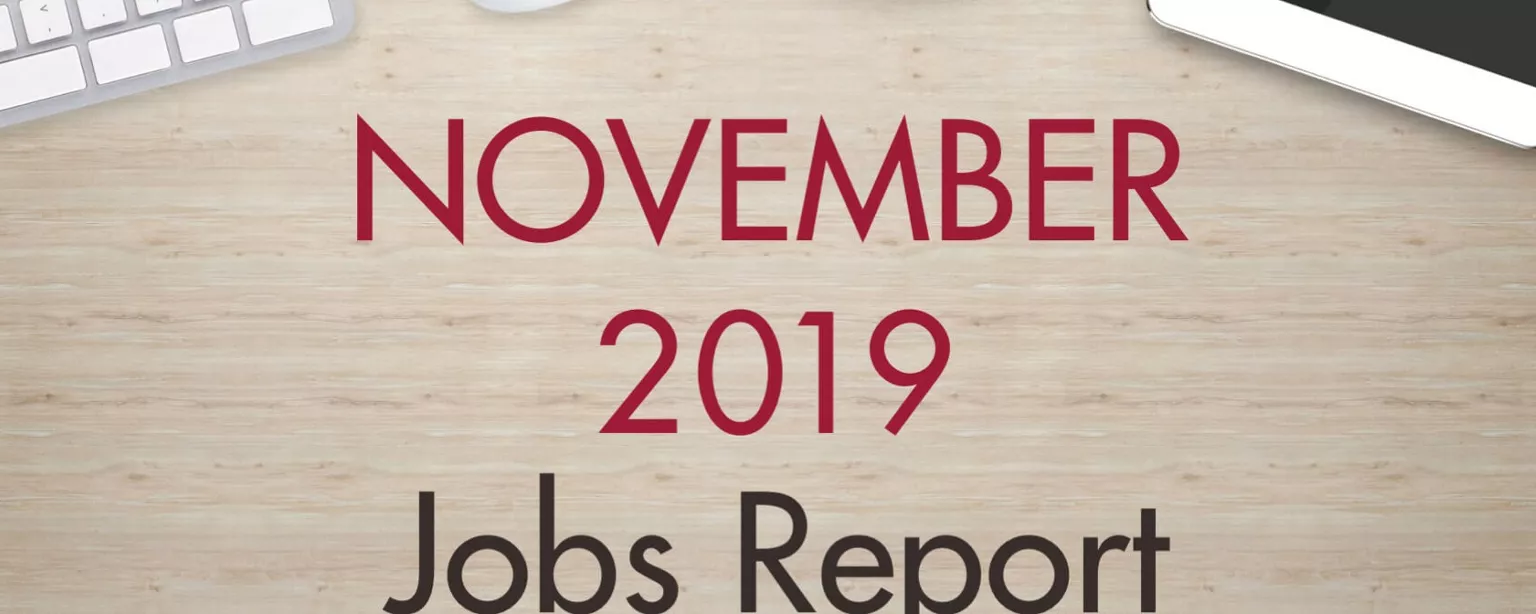Job gains in November were well above many economists’ expectations, with employers adding 266,000 positions, according to the Bureau of Labor Statistics (BLS).
Since the start of 2019, the economy has seen job gains of nearly 2 million — or roughly 180,000 positions per month, on average. That figure reflects adjustments to data for September and October: The BLS says employers created 41,000 more positions during those months than previously reported.
The following sectors led payroll expansion in November:
- Education and health services: 74,000 jobs added
- Manufacturing: 54,000 jobs added
- Leisure and hospitality: 45,000 jobs added
- Professional and business services: 38,000 jobs added
- Transportation and warehousing: 15,500 jobs added
Unemployment rate down to 3.5%
The national unemployment rate was 3.5% in November, down slightly from the previous month.
The unemployment rate for college-degreed workers who are 25 or older also edged down, to 2.0%, from 2.1% in October. These workers are in the highest demand by employers.
Recent BLS data show that the unemployment rates for specialized occupations continue to trend lower than the national average. For example, the rate for accountants and auditors is 2.0%. For software developers, the rate is 1.1%. And the unemployment rate for lawyers is just 0.2%
What employers need to know
In this tight hiring market, companies are under pressure to offer the most competitive compensation they can reasonably provide to attract and retain skilled talent. However, as the old saying goes, money isn’t everything.
Job seekers expect companies to present an array of attractive nonmonetary perks and benefits, too. In fact, businesses that don’t step up to sweeten the pot with these offerings risk losing out on potential hires: Two in five workers surveyed by Robert Half said they have lost interest in a position because a company wasn’t willing to negotiate elements beyond salary.
So, when you are in talks with in-demand candidates, you’ll want to be prepared to negotiate perks and benefits. Our survey sheds light on what employers are most willing to flex on, outside of salary:
- Reimbursement for professional development and training (52%)
- Benefits (47%)
- Remote work or scheduling arrangements (45%)
To prepare for these negotiations, consult Robert Half’s latest Salary Guides for insight into what benefits, perks and starting salaries leading employers should offer job candidates.
Also, when negotiating with potential hires, don’t forget to highlight what makes your company’s organizational culture special: For many professionals, a great work environment is a valuable perk in itself.







